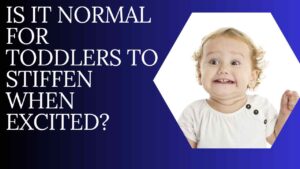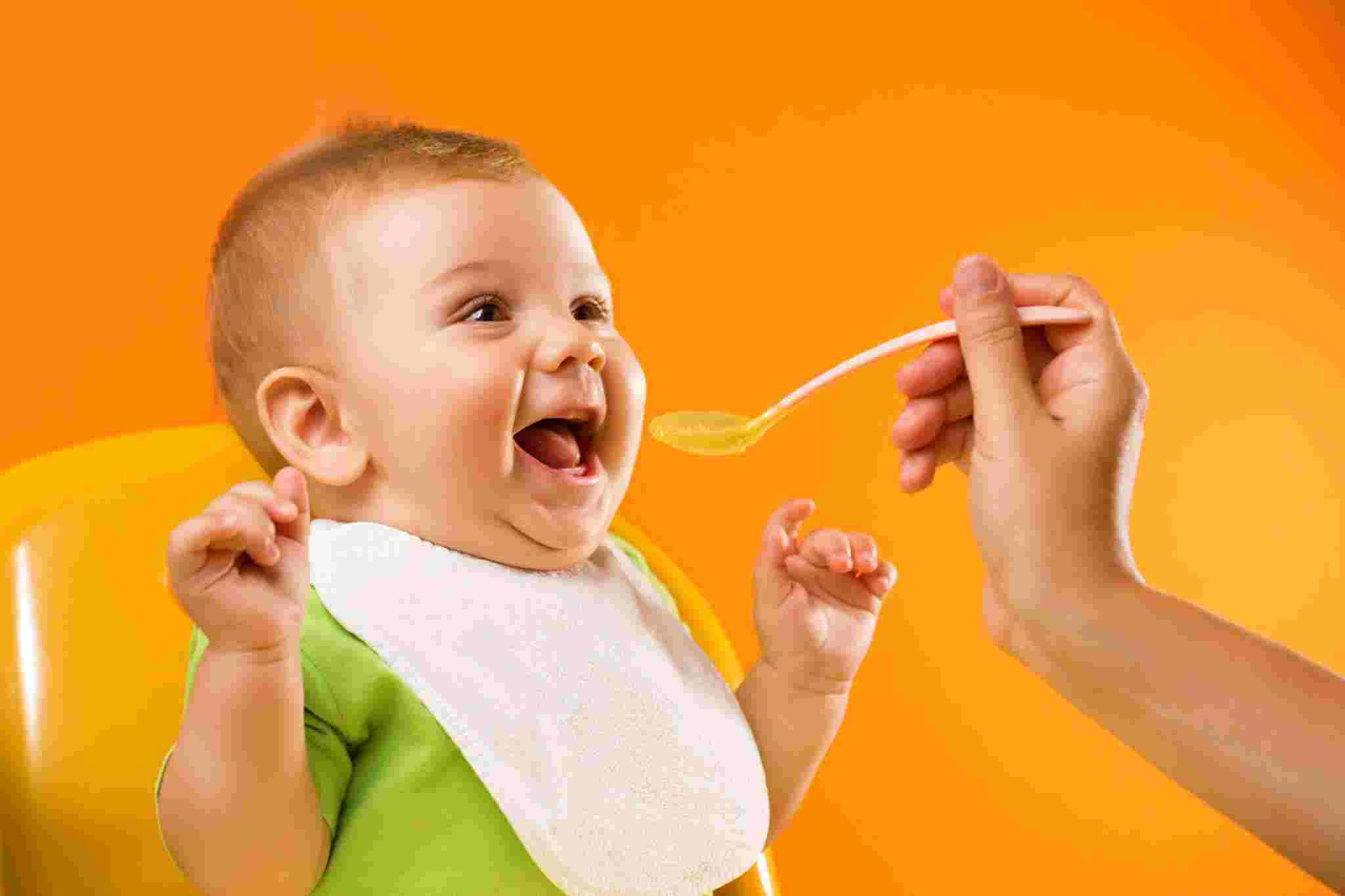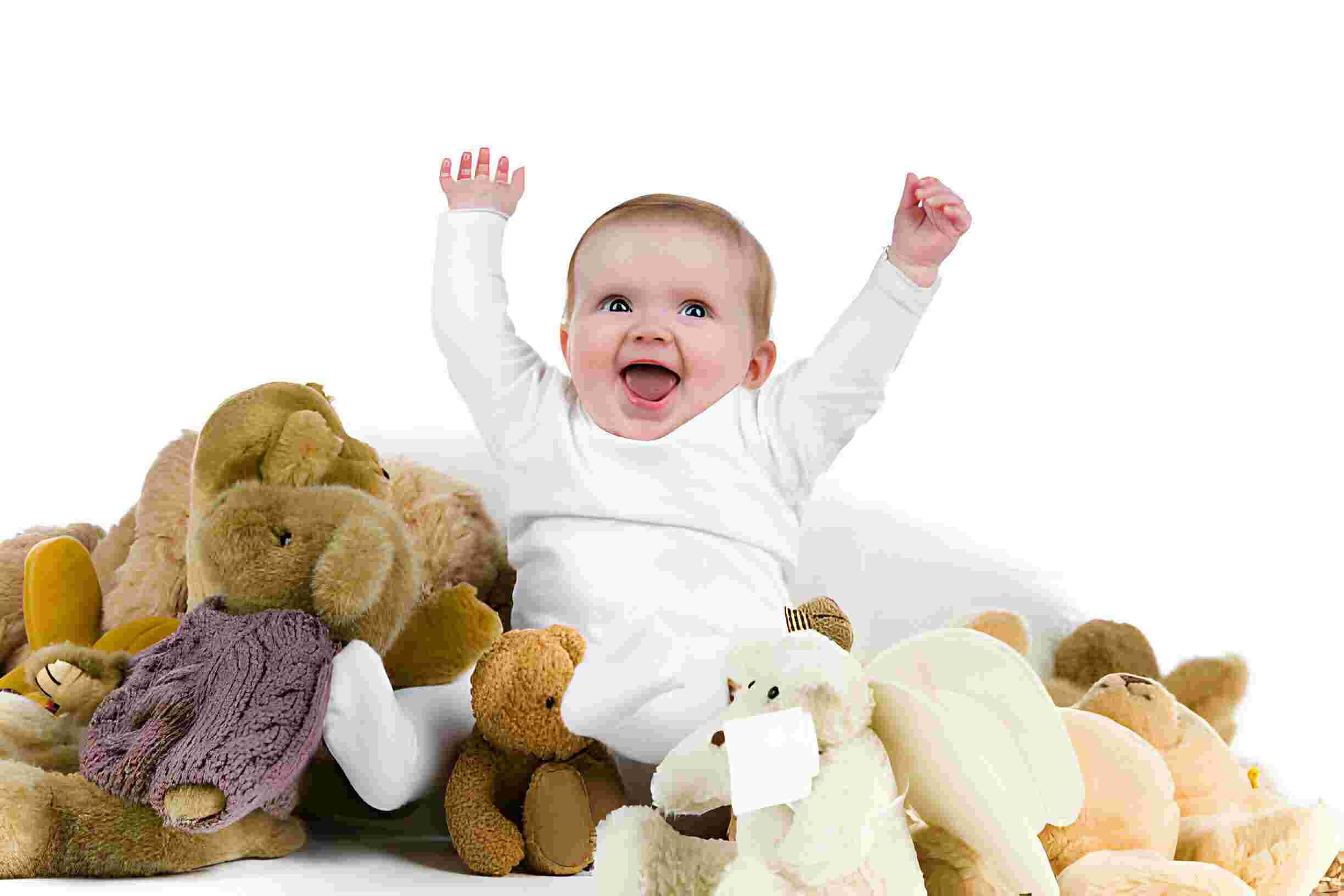Is it normal for toddlers to stiffen when excited? Toddlers, those curious explorers in the early stages of life, often display a range of intriguing behaviors that can leave one both delighted and puzzled.
As parents and caregivers witness the delightful moments of a toddler’s growth, they often observe a curious behavior that raises questions: is it normal for toddlers to stiffen when excited?
This intriguing phenomenon, although initially perplexing, has been observed in many toddlers and has prompted researchers and child development experts to explore its underlying causes and significance.
In this article, we look into the normalcy of toddlers stiffening when excited, shedding light on the potential reasons behind this behavior and offering insights into its role in the fascinating world of early childhood development.
Is it normal for toddlers to stiffen when excited?
Yes, it’s normal for toddlers to exhibit stiffening or tensing of their bodies when they are excited.
The Moro reflex is present in infants from birth and usually fades as the child gets older. However, it can still be triggered in some toddlers, especially when they are excited or overwhelmed by strong emotions.
This reflex involves a series of actions: the child may suddenly extend their arms and legs, arch their back, and then bring their arms back to their body. This can make them appear momentarily stiff or rigid.
The exact reasons why some toddlers exhibit this reflex when excited are not fully understood, but it is considered a normal part of their development.
The nervous system of a toddler is still maturing, and their responses to various stimuli may not always be fully coordinated. As their nervous system continues to develop and mature, these reflexive responses tend to become less frequent and pronounced.
Occasional stiffening when excited is usually not a cause for concern. However, if you notice that your toddler’s stiffening episodes are frequent, intense, or accompanied by other unusual behaviors, it is important to discuss your observations with a pediatrician. They can provide further guidance and ensure that everything is progressing as expected in your child’s development.
Is it normal for babies to get overly excited?
Yes, it’s normal for babies to get overly excited at times. Babies and young children are still developing their emotional regulation and social skills, so they often express their emotions, including excitement, more intensely.
Their brains are rapidly developing, and their limited ability to control their reactions can lead to moments of being overly excited. As they grow and learn, they gradually develop better control over their emotions and reactions.
Is it normal for babies to tense up and shake?
Babies can sometimes exhibit brief episodes of trembling or shaking, which is usually normal and often referred to as “infantile tremors” or “trembling spells.”
These are seen in newborns and young infants and may involve isolated body parts, such as the chin, hands, or legs. There are a few factors that can contribute to these tremors:
1. Immature Nervous System:
A newborn’s nervous system is still developing, and the coordination of movements may not be fully established. This can lead to minor tremors that are generally harmless.
2. Hunger:
Trembling or shivering can be a sign of hunger in babies. When blood sugar levels drop, a baby’s body might react with minor shakiness until they are fed.
3. Temperature Regulation:
Babies are still learning to regulate their body temperature, and shivering can be a response to feeling cold.
4. Moro Reflex:
Also known as the startle reflex, this is an involuntary reaction that can cause a baby to suddenly jerk their limbs, leading to a momentary trembling.
5. Caffeine Intake:
If the mother consumed caffeine during pregnancy or breastfeeding, it can sometimes lead to temporary tremors in the baby.
While these tremors are usually normal and harmless, it’s important to be observant. If you notice any of the following signs, it’s recommended to consult a pediatrician:
- Tremors that seem severe or last for an extended period.
- Tremors that involve the entire body rather than isolated body parts.
- Tremors that are accompanied by other concerning symptoms, such as difficulty feeding, irritability, lethargy, or poor muscle tone.
Always trust your instincts as a parent. If you’re ever worried about your baby’s health or development, seeking guidance from a medical professional is a prudent step.
Toddler stiffens and shakes when excited
It’s not uncommon for toddlers to display physical reactions like stiffening and shaking when excited. These reactions might be due to an immature nervous system that temporarily overwhelms their ability to control their movements.
As their sensory and motor systems continue to develop, these behaviors usually diminish. However, if you have concerns about your child’s development or health, consult a pediatrician to rule out any underlying issues.
Why does my baby have jerky movements when excited?
Jerky movements in babies when excited are often a normal part of their developmental process. Babies’ nervous systems are still developing, and their movements can be somewhat uncoordinated, especially when they’re excited.
This is usually nothing to worry about and tends to improve as they grow and their motor skills become more refined.
However, if your baby’s movements seem excessively jerky or out of control, it’s good to consult with a pediatrician to rule out any underlying issues.
Why does my baby get stiff and shake when excited?
Babies may exhibit stiffening and shaking movements when excited due to an immature nervous system. These movements are often referred to as “infantile spasms” or “fencing reflex.” It’s usually a normal part of a baby’s development and tends to improve as their nervous system matures.
Why does my 2 year old stiffen up?
Stiffening up in a 2-year-old might be related to a few different factors. It could be a natural response during tantrums, as young children often display physical tension when frustrated. It’s also possible that they are exploring their body’s movements and testing their own physical abilities.
Why does my toddler shake her head when excited?
Toddlers often shake their heads when excited as a form of physical expression. It could be a way for them to release excess energy or simply a natural response to their heightened emotions.
This behavior might also be influenced by observing others or could have a developmental component. It’s considered a normal and harmless behavior in young children.
Why Does my toddler shake his arms and legs when excited?
Toddlers often shake their arms and legs when excited as a way to release excess energy and express their emotions. This behavior is a natural response to the excitement they’re feeling.
It’s a way for them to physically show their enthusiasm and engage with their environment. As they continue to develop motor skills and communication abilities, this behavior may evolve into more controlled expressions of excitement.
Baby stiffens legs and arms autism
Stiffening of the legs and arms in babies can be a potential sign of various developmental concerns, including autism spectrum disorder (ASD), but it’s not a definitive indicator on its own.
Autism is a complex neurodevelopmental disorder characterized by difficulties in social interaction, communication, and repetitive behaviors.
In some cases, babies with autism might exhibit unusual motor movements or behaviors, such as stiffening of limbs, repetitive motions, or lack of responsiveness to social cues.
However, these signs can also be associated with other conditions or might be within the range of normal development for some infants.
If you are worried about your baby’s development, it’s essential to consult with a qualified healthcare professional, such as a pediatrician or a developmental specialist.
They can conduct a thorough evaluation, consider various factors, and provide appropriate guidance or referrals based on your child’s specific needs.
Remember, early intervention and accurate diagnosis are crucial for providing the best possible support and care for your child.
How do I know if my baby has hypertonia?
Hypertonia refers to increased muscle tone, which can affect a baby’s movement and posture. Signs of hypertonia in a baby might include:
1. Stiffness
If your baby’s limbs feel unusually rigid and resist movement, it could indicate hypertonia.
2. Resistance to Stretching
When you try to move your baby’s limbs, you might notice increased resistance or difficulty in stretching the muscles.
3. Difficulty in Movement
Babies with hypertonia might have trouble moving certain body parts smoothly, making their movements appear jerky or stiff.
4. Abnormal Posture
You might notice that your baby tends to hold their limbs in an abnormal or awkward posture.
5. Delayed Milestones
Hypertonia can lead to delays in reaching developmental milestones like rolling over, sitting up, or crawling.
6. Exaggerated Reflexes
Your baby’s reflexes might be more pronounced than usual, such as an exaggerated startle response.
7. Clenched Fists
Constantly clenched fists, especially when the baby is awake, could be a sign of hypertonia.
8. Difficulty in Feeding
Babies with hypertonia might have difficulty feeding, as it can affect their ability to suck, swallow, and coordinate their mouth movements.
9. Arching Back
When you pick up your baby, they might arch their back and resist being held.
In conclusion of is it normal for toddlers to stiffen when excited, it is quite common for toddlers to exhibit stiffening behaviors when excited. This response is a part of their developing neurological system and is considered a normal physiological reaction.
This behavior diminishes as they grow and gain better control over their motor skills.
However, if you notice any other unusual behaviors, consulting a pediatrician is advisable to ensure the child’s well-being and address any potential underlying issues.












